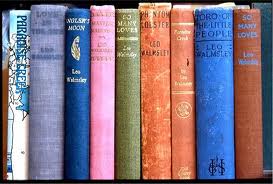Fiction
Verdict: Read it!
This novel was one I picked up in the bookstore. It was a long time ago! I'm not a collector you are! Ahem.
I haven't read anything from Fatima Bhutto prior to this. Layla runs away from her dead-end family in her dead-end town to find religion and adventure as a religious fanatic in a far away desert. She has a boyfriend, Monty, that she leaves behind. In an epic show of love he follows her and tries to save her from herself only to end up almost dying himself.
Pakistani authors always fascinate me as I'm deep into Indian literature and the flavor is definitely different. The reader is never completely sure if Layla ever loved Monty or he was just a piece of furniture in her life. The reader is also never let in on why Laila ran away to be an extremist. That drove me crazy for a long time after reading this book. I'm not a muslim, I've never leaned towards the extreme anything which makes it more difficult to understand. But I do understand running away. And sometimes that only makes sense to the person running.
Its a simple read. While the book is long, it doesn't take much digestion time. But it does leave you with questions and thoughts.
Read it!
~Becky~
